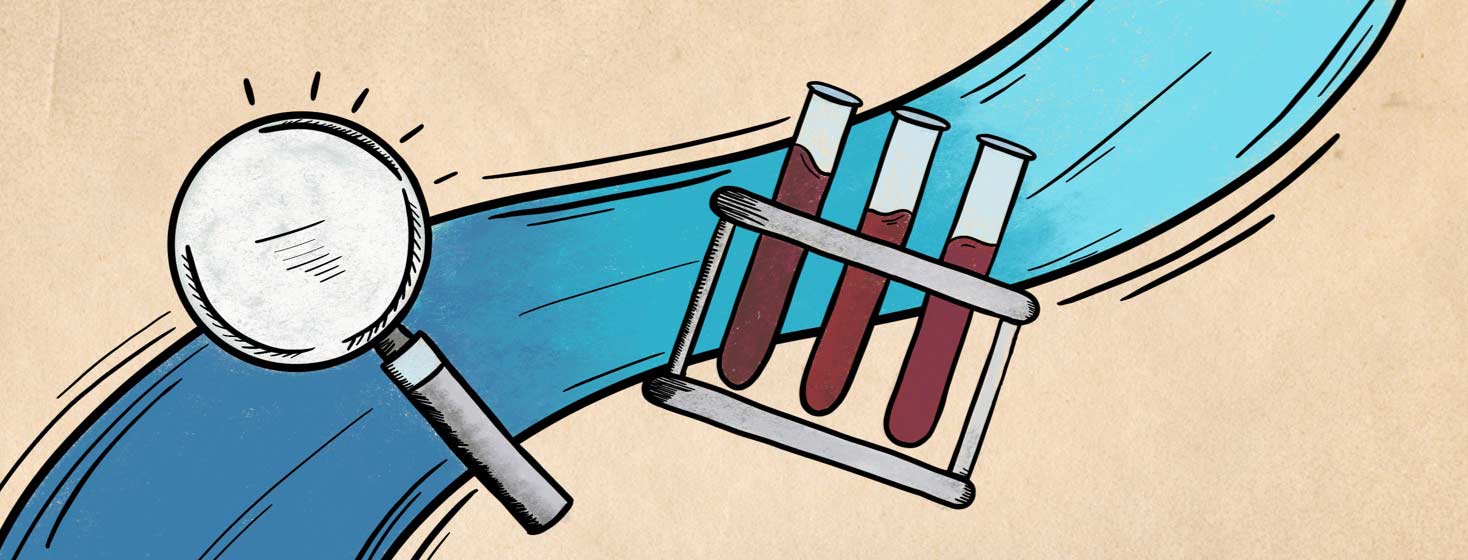Hepatitis C Antibodies
The antibody test for hepatitis C infection causes some confusion amongst patients. This test is performed as screening test. If a person has ever been exposed to hepatitis C virus, he will have antibodies in his blood. Antibodies are actually chemicals that are released into the blood when a person comes in contact with the virus.
This does NOT mean that he definitely has the virus. It means that he has been exposed. Results from the antibody test usually take a week or more to come back. There is a rapid test that is FDA approved for “high risk” patients only, that returns results in 20 minutes. Following a positive antibody test, an HCV/RNA by PCR test, better known as “viral load test”, should be performed. If that test is positive (detected) it means that the actual virus has been seen in the bloodstream and the patient does have the hepatitis C virus.
What happens after a positive antibody test?
At that point, a patient should seek the help of his/her physician. There are more tests that need to be ordered before deciding on treatment. The genotype test is important if a patient wants to treat the virus as treatment decisions regarding which drugs to use and the duration of treatment depend on the patients subtype or genotype of the virus. A complete metabolic panel is also done to give the physician information about the general health and well-being of the patient, as well as how the liver is functioning.
Viral load testing after a positive antibody test
It is very important to wait after possible exposure to have the antibody test. The Centers for Disease Control (CDC) says that antibodies may show in the blood between 6-7 weeks after exposure. If the test is negative at that time, it should be repeated at 6 months as some people take a longer time to develop the antibody. The HCV/RNA by PCR test is definitive earlier after exposure if there is a need to know sooner.
Will antibodies ever go away?
A question often asked after clearance of the virus, also known as achieving an SVR (sustained viral response) is “What happens to the antibodies?". Unfortunately, the antibody is with the patient for life. It does NOT go away. The viral load becomes undetected. The virus is gone and the patient is cured! But, he still carries the antibody.
A study done in 2009 and published in Liver International, called Sustained Virological Response is Associated With Clearance of Hepatitis C Virus RNAS and a Decrease in Hepatitis C Virus Antibody, shows that the antibodies directed at NS 3, 4, and 5 are markedly decreased but the core protein titer remained high. This just means that the antibody test given after SVR will be less strong, but it will still be found in the blood of patients who were ever positive for hepatitis C virus.
Can I get hepatitis C after treatment?
An important thing to remember is that once a person has cleared the virus and is cured, he can get the virus again. The antibody for hepatitis C virus is not protective like the antibody for measles or mumps.
The CDC recommends a one-time antibody test for all baby boomers. Baby boomers are those born between 1945 and 1965. If you think you are risk for hepatitis C, it is a good idea to get tested. Knowing your status helps safeguard against further damage to your liver, through treatment and/or healthy lifestyle behaviors.

Join the conversation